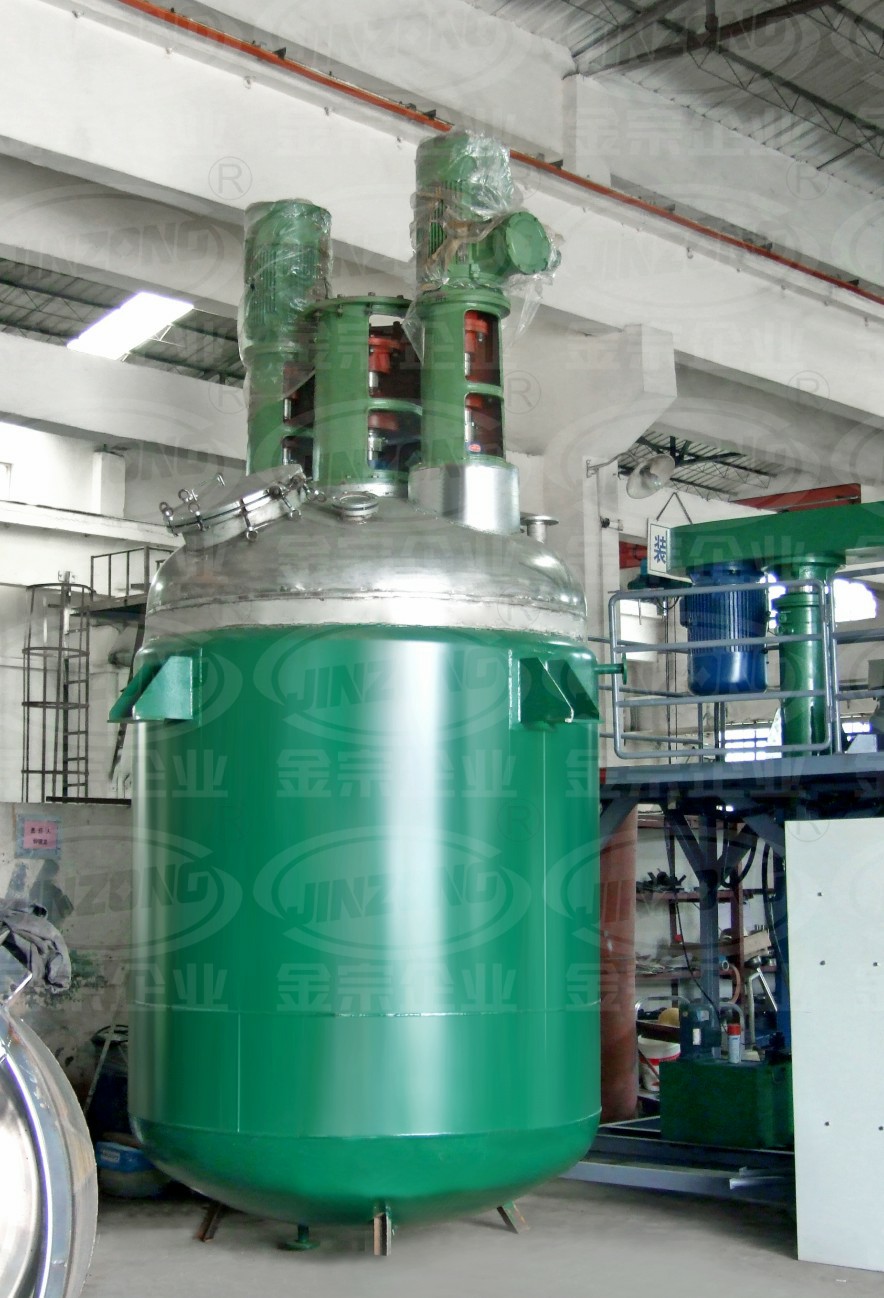Guangdong Jinzong Machinery Co., Ltd.
Contact Sales at JuJiao.
In modern chemical industry and related scientific research fields, reaction vessels are an indispensable key equipment.As a container for chemical reactors,it not only provides a safe and controlled environment for various chemical reactions,but also promotes an efficient process of converting raw materials into products.Jinzong Company,which has more than 20 years of experience in the design and manufacture of reactor prduction,will introduce the basic concept,struture,working principle,application field and its importance in modern chemical production.

The Basic Concept of Reactor
Reactor,also known as a reaction tank for pressure vessel,it is a closed container that can withstand a certain pressure and it used to complete gas-liquid-solid and other multiphase reactions.They are designed to meet specific safety standards to ensure safe and reliable operation under extreme conditions such as high temperature and pressure.
Structural composition of Reactor
Reactor is usually composed of the following main parts:
Vessel Body:It is the core of the reactor for loading the reaction material.According to the different reaction conditions,the kettle body can be made of stainless steel,carbon steel,glass lined or special alloy materials to resist corrosion and high temperature.
Stirring Device:It used for mixing reactants to improve reaction rate and reaction uniformity.Agitators come in various forms,such as turbine type,paddle type,frame type,etc.,which can be selected according to the reactant properties and reaction requirements.
Heating Transfer Device:Including jacket,snake tube,column tube,etc.,used to heat or cool the reaction material,maintain the temperature conditions required for the reaction.
Sealing Device:Ensure high pressure or vacuum in the kettle to prevent material leakage-and foreign impurities from entering.Common mechanical seals,magnetic seals and so on.
Pressure Gage、Temperature Gage、Sight Glass and othe accessories:Used to monitor and control reaction conditions, ensuring the safety and controllability of the reaction process.
Working Principle of Reactor
The working principle of a reactor is based on the chemical reaction of materials under specific temperature, pressure, and stirring conditions. When operating, first add the reactants in proportion to the chain reactors, and use a stirring device to fully mix the materials and accelerate the reaction speed.At the same time, the temperature inside the high viscosity reactor is adjusted through a heat transfer device to maintain the optimal reaction conditions. Throughout the process, various parameters are monitored through instruments to ensure smooth reaction until completion. After the reaction is completed, the product is taken out through the discharge device.
Application Area of Reactor
What is the function of reactor in chemical plant? Reactors are widely used in multiple industries such as chemical, pharmaceutical, petrochemical, metallurgical, and food processing, involving products such as synthetic resins, coatings, pharmaceutical intermediates, biological agents, fuels, etc. It plays a crucial role in the development of new materials, drug synthesis, and preparation of petrochemical products.
Importance and Development Trends
A chain reactor is not only a fundamental tool for achieving chemical reactions, but also a key equipment for improving production efficiency, optimizing product quality, and promoting technological innovation. With the advancement of technology, reaction vessels are developing towards greater efficiency, intelligence, and environmental protection. The application of intelligent control systems and remote monitoring technology makes the control of reaction conditions more precise and the production process safer and more reliable. In addition, the advancement of materials science has also promoted the application of new corrosion-resistant and high-strength materials, extended equipment life, and reduced maintenance costs.
In short, as an indispensable core equipment in chemical production, the improvement of the design, manufacturing, and application level of the high viscosity reactor is directly related to the overall progress and development of the chemical industry. In the future, with the continuous innovation of technology, reaction vessels will demonstrate greater potential and value in more fields.
Copyright © 2025 Guangdong Jinzong Machinery Co., Ltd. | All Rights Reserved
We are here to help you! If you close the chatbox, you will automatically receive a response from us via email. Please be sure to leave your contact details so that we can better assist